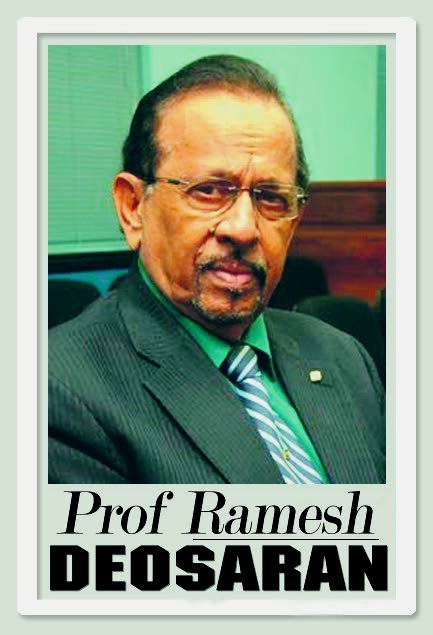Resignations and renewal

So a preliminary report from the covid19 recovery committee has been given to the Prime Minister and, as committee vice chairman Robert Le Hunte declared, he was not satisfied with the way in which the PM handled the committee’s recommendations.
This comes after Dr Terrence Farrell’s similar dissatisfaction and resignation from the Economic Advisory Board. Of course, executive privilege trumps.
Le Hunte also faced “policy conflict” over his IDB-supported $1.5 billion WASA water-metering proposal, with Finance Minster Colm Imbert pleading escalating expenditures and loans. Mr Le Hunte resigned as minister.
Since joining the PNM frontline, Le Hunte appeared rather businesslike, with a most difficult portfolio. He repeatedly complained about corruption arising from the water desalination project. He remains PNM vice-chairman ready to do battle.
Le Hunte’s exceptional resignation attracted excitement. Vasant Bharath did resign as UNC senator “on principle” since, as he explained, he had challenged Ms Persad-Bissessar’s leadership. Former PM Persad-Bissessar, even with smiling face, fired several ministers.
Now there is much more to this country’s political history, so easily forgotten that the same mistakes get repeated. In other words, the dysfunctional parts of our political culture remain intact regime after regime.
A major reason for the electoral collapse of Kamla’s 2010-15 UNC (PP) government was the repeated allegations of corruption. Basdeo Panday as former PM also experienced collapse, engineered by allegations of corruption by Ramesh Maharaj, Trevor Sudama and Ralph Maraj. Corruption allegations will likely be exchanged during the coming campaign.
The brief point is that corruption and political mismanagement began since political independence, including the WASA “Lockjoint” project, John O’Halloran, Francis Prevatt, the past and present escapees to Panama, etc.
The basic question to be answered by voters and candidates alike is what precisely has been done to bring the political system to a higher level of public morality and accountability? Will things be better after this election?
Recent procurement and election financing legislation are welcome “better late than never” signs pending operationalisation. Ms Persad-Bissessar exceptionally apologised for her “mistakes.” Specify them for improvement.
Dr Rowley apologised for not tackling crime as he expected. Why not? Specify reasons for improvement.
The covid19 recovery committee recommendations will inevitably find their way into the PNM election manifesto. Unless the UNC wins.
Anyhow, jump high or jump low, whatever recommendations proposed, especially “big idea” ones, will eventually face downstream challenges within the political, legislative and governance framework. This is evident from the institutional dysfunctions discovered from the numerous joint select committee meetings and from my own experiences in and out of Parliament,
Given its economic focus, at least three outstanding issues will follow the recovery committee’s early report. (1) Effective implementation and the technical support required. (2) The subsequent need for long-term planning and mechanisms required not only for economic but for embracing social and governance objectives. (3) The well-known inefficiencies and “unfit for purpose” condition of state agencies and institutions required for effective implementation will be troublingly exposed.
In other words, it is not only a matter of what to do, but more essentially how effectively to get it done. Will there be increased borrowing and taxation after elections? It will indeed be a tough recovery challenge for any government.
Bhoe Tewarie’s “six main things” for post-covid19 recovery, while thematically appropriate, rest on assumptions and conditions which are really the substantive challenges.
The “survival needs” he listed, for example, have to consider where the money coming from. His “restorative” requirement, he says, “must be facilitated by a supportive and conducive” government. This condition has long been very elusive for all governments. What is required from both current and former ministers, including Dookeran and Bharath, is not only additional proposals but more productively ways to overcome the specific barriers which prevented their earlier proposals from coming into reality.
State clearly the obstacles to agricultural diversification. Dr Tewarie is thinking. But say what obstacles his “four growth poles” faced when he was planning minister, etc. What about the “silver or green” economy, etc? Check South Korea, Dubai, Singapore for moving into a new economy.
Ms Persad-Bissessar also produced a five-part “post-covid19 economic recovery plan.”
Whether it will be Ms Persad-Bissessar or Dr Rowley, recovery will require hard work and avoiding the mistakes of the past.


Comments
"Resignations and renewal"